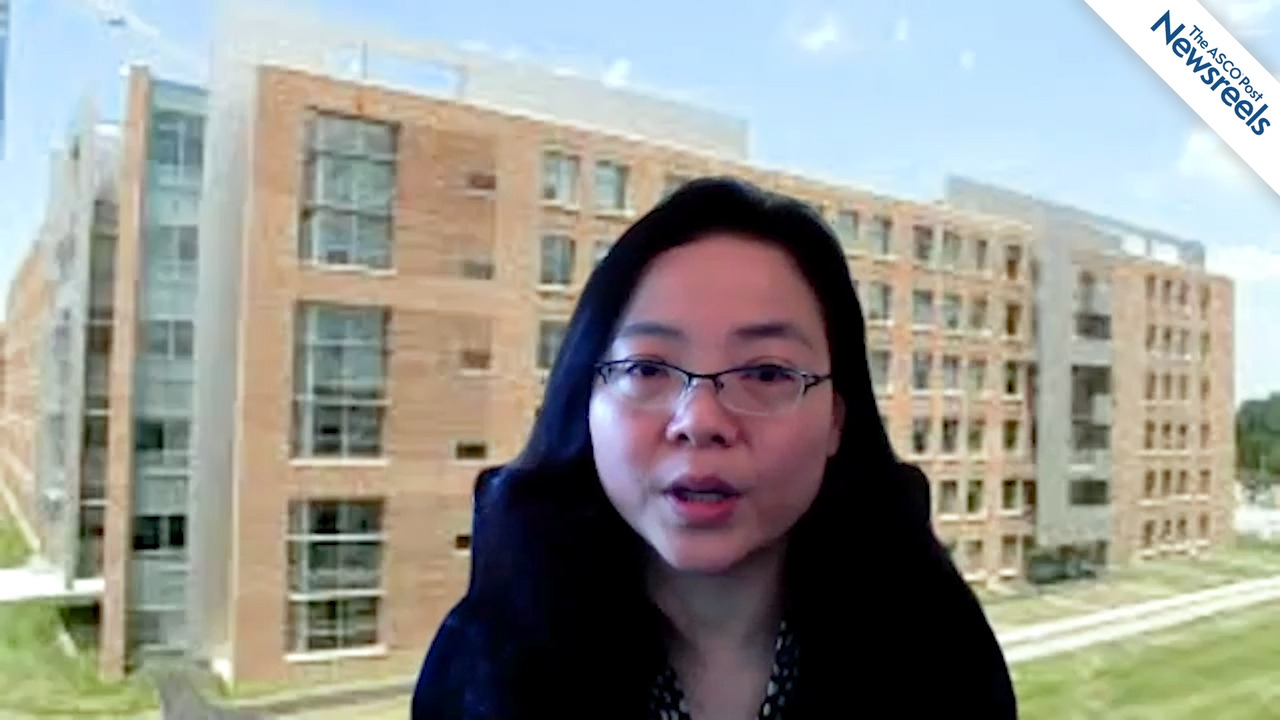Kimlin T. Ashing, PhD, on Tobacco and Vape Shops in Neighborhoods With Lower-Income and Minority Populations
AACR Virtual Annual Meeting 2020 I
Kimlin T. Ashing, PhD, of City of Hope National Medical Center, discusses analyses that showed neighborhoods with lower-income and minority populations had a greater number of tobacco and vape shops, increased use of electronic nicotine delivery systems, and lower-priced tobacco products. This information may help public health efforts address the high rates of vaping among teenagers in these communities (Abstract CT087).
The ASCO Post Staff
Edward B. Garon, MD, of the University of California, Los Angeles David Geffen School of Medicine, discusses KEYNOTE-189 trial findings that showed adding pembrolizumab to pemetrexed plus platinum—which previously was found to improve overall and progression-free survival—is also safe and has manageable toxicity in long-term use for patients with metastatic nonsquamous non–small cell lung cancer (Abstract CT085).
The ASCO Post Staff
Qi Liu, PhD, of the U.S. Food and Drug Administration, discusses data that suggest that patients with advanced non–small cell lung cancer who had a past medical history of pneumonitis were more likely to experience treatment-associated pneumonitis in response to immune checkpoint inhibitors or chemotherapy (Abstract CT086).
The ASCO Post Staff
Grant A. McArthur, MBBS, PhD, of the Peter MacCallum Cancer Centre, discusses phase III results from a study of previously untreated patients with BRAF V600 mutation–positive advanced melanoma. His team evaluated whether combining vemurafenib and cobimetinib with atezolizumab improved the durability of responses compared with targeted therapies plus placebo (Abstract CT012).
The ASCO Post Staff
Steven J. O’Day, MD, of the John Wayne Cancer Institute, discusses phase II results for the combination of pembrolizumab with a novel innate immune activator, Imprime PGG, as second-line treatment for patients with metastatic triple-negative breast cancer ( Abstract CT073).
The ASCO Post Staff
Lajos Pusztai, MD, PhD, of Yale Cancer Center, discusses study results on durvalumab in combination with olaparib and paclitaxel as neoadjuvant treatment in patients with high-risk HER2-negative stage II/III breast cancer. Compared with patients who received chemotherapy alone, the combination improved pathologic complete response, even in women with triple-negative breast cancer (Abstract CT011).





